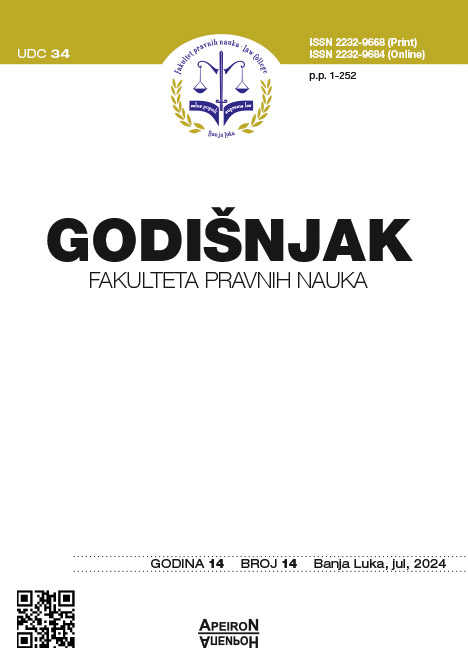Computer Fraud in the Law of Bosnia and Herzegovina and International Standards
DOI:
https://doi.org/10.7251/GFP2414005SKeywords:
computer fraud, law, criminal offense, responsibility, international standardsAbstract
In the modern criminal legislation in general, and also in the positive law of Bosnia and Herzegovina, several different criminal offenses of fraud are prescribed. These criminal offenses are systematized in different groups of offenses according to different protective objects, but with more or less identical acts of execution with the intention/goal of obtaining benefits for oneself or for another person, i.e. with the intention/goal of causing harm to another person. These are: a) voting fraud (or election fraud), b) fraud in business operations (or insurance fraud), c) fraud, d) service fraud, and e) computer fraud. In the system, a set of several different forms of manifestation of criminal offenses of fraud, a criminal offense of computer fraud prescribed by three criminal laws (except the Criminal Code of Bosnia and Herzegovina) has specific character, nature and content. This incrimination is based on relevant international standards contained in the Council of Europe Convention on Cyber (computer) crime (Budapest, 2001). This paper presents the concept, characteristics, elements and content of the criminal offense of computer fraud in accordance with legal solutions with application in Bosnia and Herzegovina.
